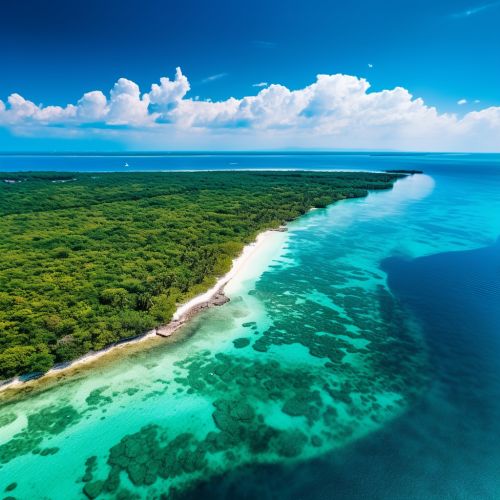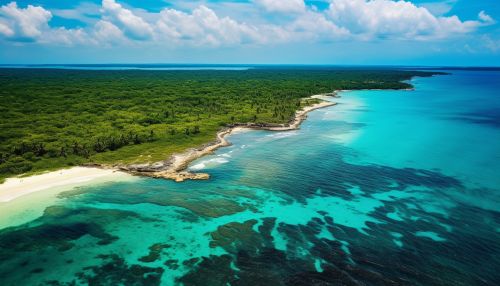Yucatan Peninsula
Geography
The Yucatán Peninsula is a region of southeastern Mexico, separating the Caribbean Sea from the Gulf of Mexico. The peninsula is the exposed portion of the larger Yucatán Platform, all of which is composed of carbonate and soluble rocks, being mostly limestone although dolomite and evaporites are also present at various depths. The whole of the Yucatán Peninsula is an unconfined flat lying karst landscape.


Climate
The Yucatán Peninsula lies within the tropics, so it has a relatively stable climate with the least temperature variation in Mexico. It is classified as hot tropical or hot subhumid, with a rainy season in the summer. The peninsula is known for its heavy rainfall, particularly during the summer months.
Flora and Fauna
The Yucatán Peninsula is rich in wildlife and vegetation. The region is home to the Yucatán dry forests ecoregion, which is unique in the world. The forests are home to a wide variety of species, including the jaguar, Yucatán brown brocket, and the Yucatán wren. The peninsula also hosts a significant population of American flamingos.
History
The history of the Yucatán Peninsula is marked by the ancient Maya civilization, which reached its peak around the 6th century AD. The Maya established a complex network of city-states throughout the peninsula. Among the most notable of these are Chichen Itza, Uxmal, and Tulum, which are now significant archaeological sites.
Culture
The Yucatán Peninsula is known for its unique culture, a blend of indigenous Maya and colonial Spanish influences. The region has its own variant of the Spanish language, known as Yucatec Spanish, which is influenced by the Yucatec Maya language. The peninsula is also known for its cuisine, which includes dishes such as cochinita pibil, panuchos, and papadzules.
Economy
The economy of the Yucatán Peninsula is largely based on tourism, agriculture, and fishing. The region's tourism industry is centered around its many archaeological sites, beautiful beaches, and unique culture. Agriculture is focused on the production of henequen, citrus fruits, and honey, while the fishing industry primarily targets lobster and octopus.
